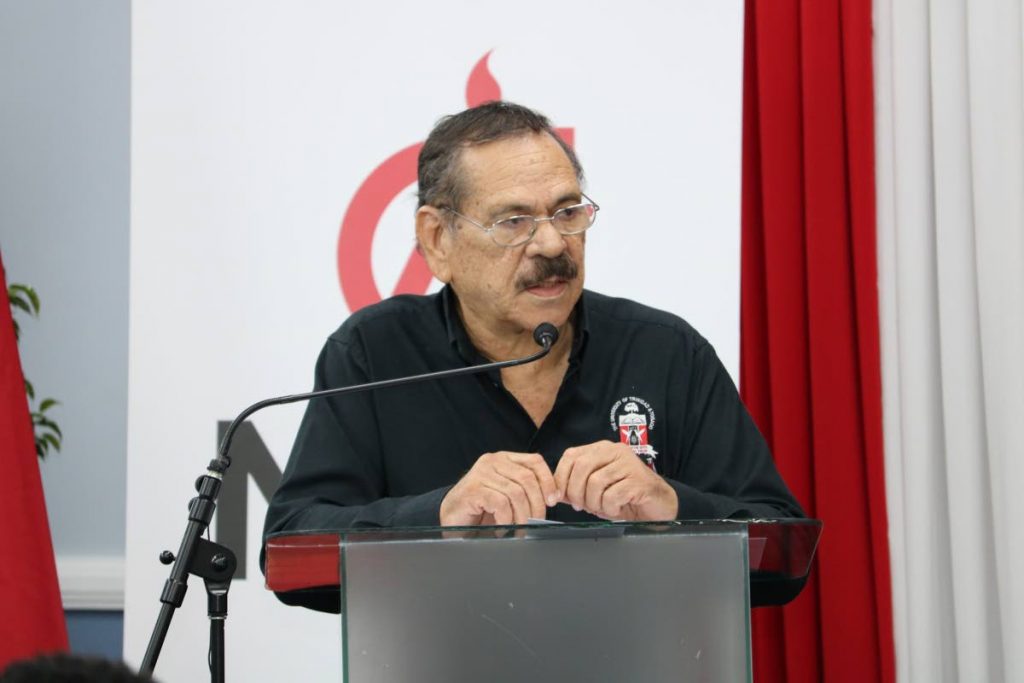Less $$ from govt led to lay-off of 200

PAINTING a grim picture of the University of TT’s (UTT) financial position, acting chairman Professor Clement Imbert said the restructuring exercise which will see 200 non-academic staff being sent home, is to ensure the institution’s survival.
He said laying off the 200 which includes staff at the level of manager and above, will reduce its payroll by $2 million monthly. Already, four vice president positions as well as several other managerial-level positions have been removed from the structure.
Imbert said UTT is committed to providing quality tertiary education and after the separation there will still be approximately 500 non-academic and 340 academic staff to perform the required core functions.
He noted that the restructuring exercise started over two years ago and the representing Oilfield Workers Trade Union (OWTU) was engaged since the start of the process and advised of challenges and constraints.
He said that a July 19 memo to staff and students stated that a decision had to be taken as government, the UTT’s major source of revenue, has not been able to maintain its annual subvention.
Explaining how they arrived at this point, Imbert outlined in the memo, “Government is the major source of revenue for UTT, via direct allocations for its capital and recurrent expenditure, and through the reimbursement of student fees under GATE.
“The prevailing economic situation has not allowed government to maintain the level of annual subventions previously allocated to the university. Those reductions exposed inefficiencies in the operations of the university - inefficiencies which were already being reviewed, both in respect of its academic structure and its non-academic and support staffing.”
He pointed out that salaries and related benefits of staff account for over 70 percent of it’s recurrent expenditure. “Having received a reduced allocation in 2017 and 2018, the university realised that it needed to accelerate its restructuring proposals, implemented in May 2018, since the analysis and projections showed that without fundamental changes, the university would not be in a position to continue to operate and meet its liabilities.”
He said some supplementary funding was allocated at the end of fiscal 2018, and it is these funds along with cost saving exercises that allowed the university to continue operating. But the financial burden was too much and something had to be done to further cut costs.
Implementing the non-academic restructuring (lay-offs) allows the university to reduce its payroll by approximately $2 million monthly bringing it further in line with required adjustments given the reduced level of subventions approved by government.


Comments
"Less $$ from govt led to lay-off of 200"